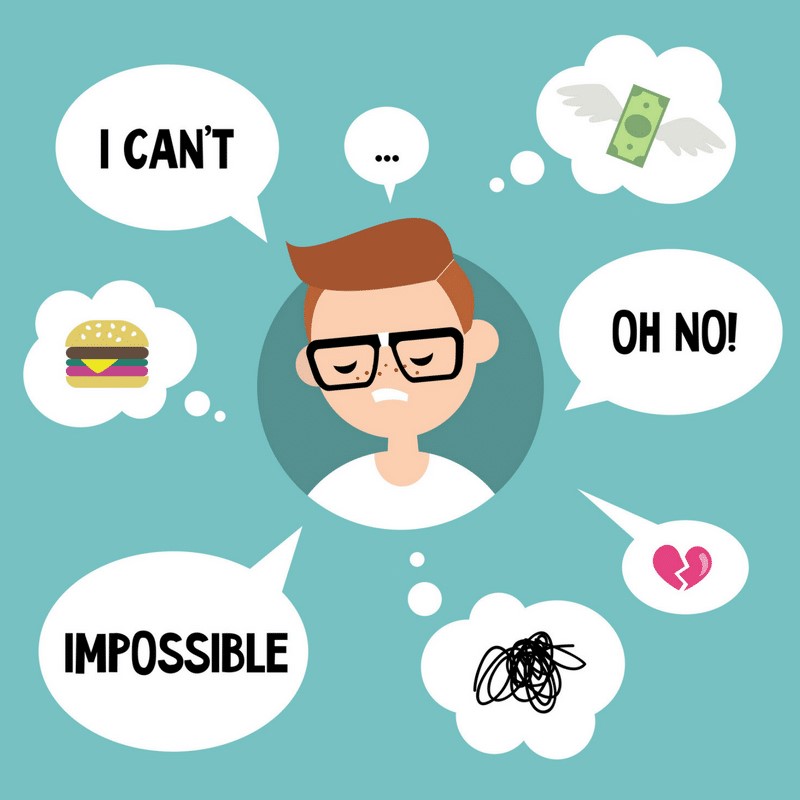courtesy of:
Several folk have noticed this phrase appearing a lot on my website. I have been asked what it means in English.
I touch on this when discussing doing something a little bit different.
Another useful link may be: Using the Inverted Tree and Body Scanning.
It may help to say more as ‘cognitions’ are central to Cognitive Behavioural Therapy (CBT) and Eye Movement De-sensitisation and Re-processing (EMDR) and a lot of other therapies.
‘Negative cognitions’ are phrases we have in our head – internal dialogue, as it has been called. ‘Negative’ as we usually bad-mouth ourselves and/or other people. This is a large topic to explore, but you could look beyond this website to:
and
In therapy it is best to concentrate on things we say to ourselves. That way any negative cognition generally begin with “I”.
Most of these beliefs about ourselves are concerned with basic things – control, responsibility, vulnerability, and getting it [life] wrong.
Where ‘negative cognitions’ can take us
There are many of them, as you might imagine; indeed, as many as we can all generate together. Some examples include:
I am worthless … inadequate …. shameful ….. not loveable …… not good enough,
I deserve to die. ….. to be miserable ….
I don’t belong …..
A typical negative thought around ……
RESPONSIBILITY, include:
I should have known better.
and around …..
VULNERABILITY include:
I cannot trust myself … my judgement ….. trust anyone
and around …..
CONTROL/CHOICE include:
I am not in control ….I am powerless …. I am weak …… I am a failure.
Compare that with some positive cognitions (or affirmations, as they can be known), such as:
I deserve love.
I am a loving person.
I am worthy.; I am worthwhile.
I deserve good things.
I can trust myself ….. I am safe now …… I can safely show my emotions ….. I am now in control …..I can get what I want.
Any of these phrases sound interesting?
Try saying one inside your head. What does it feel like?
Do not be surprised if you feel uncomfortable; that can be expected.
Any thoughts on why that might be so? If it is so, what experiment comes to mind to help you on your way? Here’s the one I prepared earlier!
Some further leads
Look for: nudging yourself.
Research into: Transactional Analysis: one other important cognitive-based therapy.
Changing your Script
Conversations that might ease negative cognitions, or
Affirmation work …. positive cognitions!
An Index of all pages on Your Nudge
Return to Front Page at https://your-nudge.com
